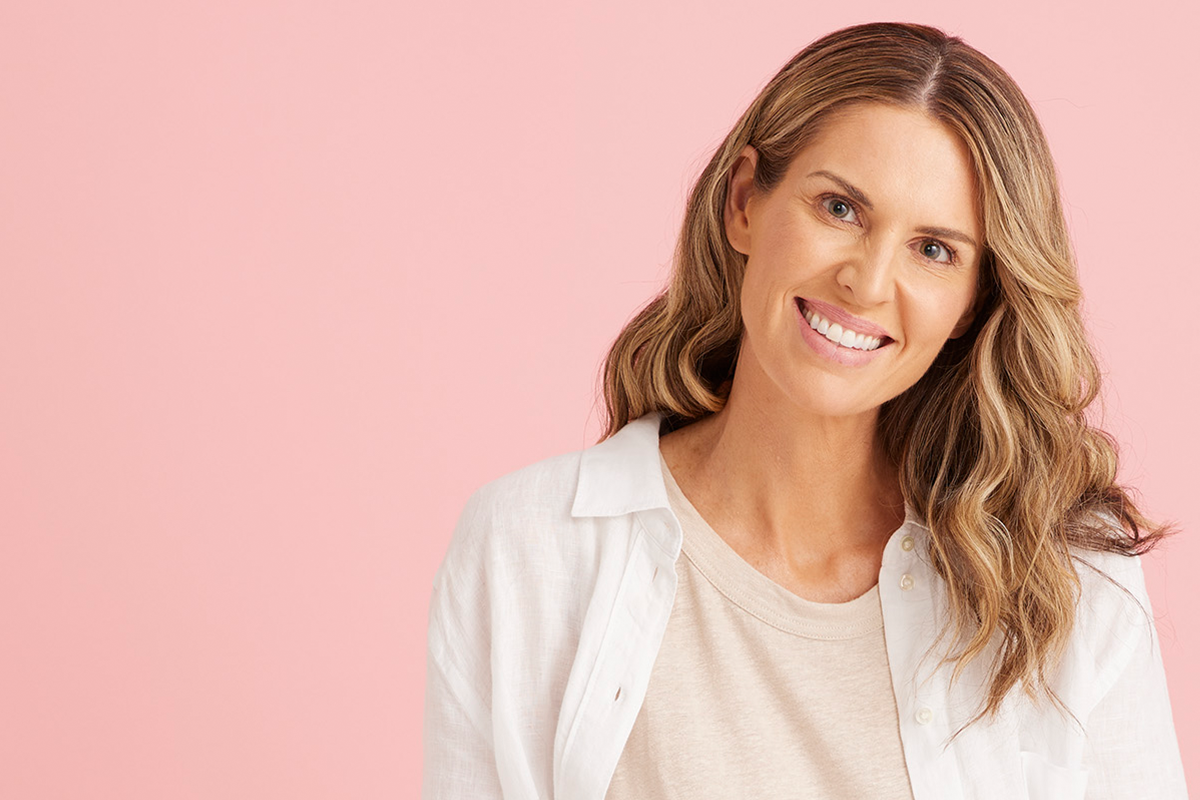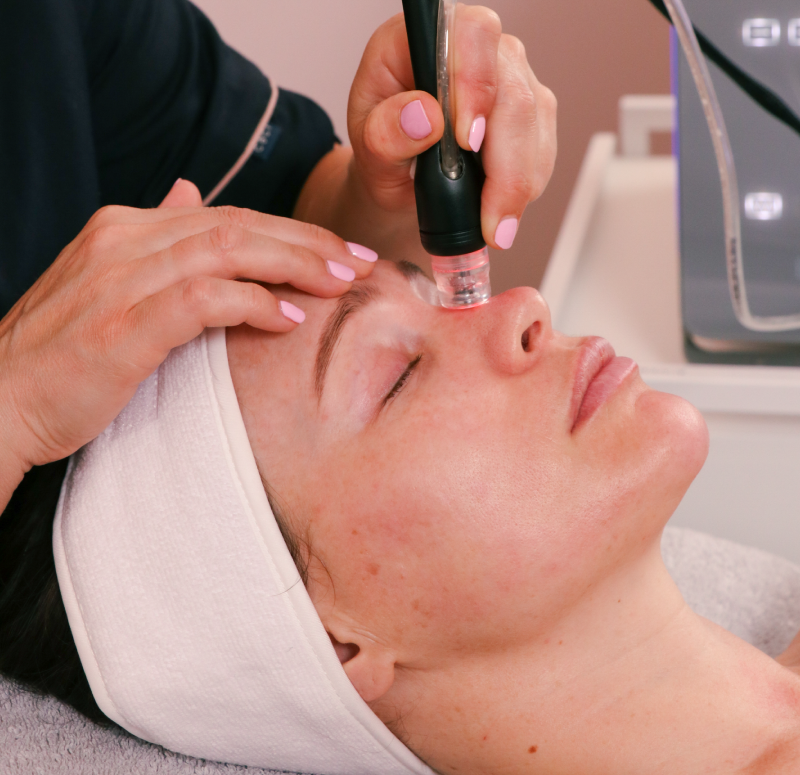While the famous pregnancy glow is undoubtedly true for some, pregnancy can wreak havoc on the skin for others. There’s no way of knowing how your skin will react until you’re actually experiencing it, so if you’re in the later camp and at a loss as to how best to treat your skin during this time, this article is for you.
Becoming a mother is a milestone event in any women's life, but navigating all these tweaks and changes can be challenging. From morning sickness to dietary changes, your everyday life can start to take an entirely different form during and after your pregnancy. But in an attempt to make skincare woes one less thing you need to worry about, here are our tips and tricks for tackling all the potential skin concerns that may sprout up during pregnancy and a skincare routine that’s both simple and safe.
Common skincare concerns that occur during pregnancy
As you’ll already know, hormones in general do tend to exacerbate certain skincare concerns. For some, this might manifest in the way of hormonal acne during that time of the month, or for others, it may cause rosacea flare-ups. Pregnancy is likely the most drastic hormonal change your body will go through in its life, so it makes sense that a lot of these concerns go part and parcel. In most cases, skincare concerns such as acne, dullness, dryness and hair loss should resolve themselves after the first trimester. But there are also times when the reverse is also true (so don’t panic!)
Acne flare-ups and pigmentation (sometimes known as pregnancy mask) are extremely common during pregnancy. So here are our top tips for treating them.
Hormonal acne
For those who thought you left your acne in your teenage years, you may be surprised if and when you become pregnant. Hormonal changes, increased sensitivity as well as an increase in oil production can exacerbate acne during pregnancy. While a few of the go-to actives such as retinol are recommended not to be used during pregnancy, there are still ingredients and treatments that are completely safe that can help you treat it (which we will get to shortly).
Pigmentation
Hormone fluctuations paired with increased sensitivity to the sun can be the perfect recipe for developing or worsening the signs of pigmentation. This usually happens in areas such as the neck, face, or even under your armpits. That is why during pregnancy, it is even more important to be applying a high-quality SPF liberally all over the areas that are exposed to the sun.
Melasma or hyperpigmentation is often a side effect of pregnancy which usually appears as dark patches on the forehead, upper lips or cheekbones (areas that are most exposed to the sun). This can also occur on the line running down your abdomen (also known as the linea alba), however, this will usually return to its normal appearance post-pregnancy.
Stretch Marks
As your skin expands to make room for your new child, oftentimes the skin will stretch and form stretch marks. Although our skin is fairly elastic, this is usually an inevitable part of pregnancy. Ensuring you are applying a good quality body lotion will help to reduce their appearance, but unfortunately, it is unlikely to completely prevent stretch marks no matter how diligently you apply it. Cocoa butter is considered the best moisturiser to help prevent and treat stretch marks. Argan, rosehip and coconut oil are often used as well - make sure you consult with your doctor or midwife before incorporating any new ingredients into your routine.
Skincare that is safe to use during pregnancy
If any of the above skincare concerns are happening to you, don’t fret it’s completely normal (and for the most part treatable). If you’re someone who doesn’t usually experience these, it is likely that your skin will return to normal post-partum so try not to stress out. If you’re wanting to get on top of the problem sooner rather than later however, here is a list of skincare ingredients that are completely safe to use during all stages of pregnancy.
Vitamin C
pause for collective sigh of relief Yes, vitamin C is completely safe to use during and after pregnancy! Vitamin C is a fantastic ingredient for brightening the skin and helping to combat breakouts. Not only will it help with overall radiance, but it also works wonders in addressing pigmentation issues, which can be a common concern during pregnancy.
To boost your routine, try Murad Essential-C Overnight Barrier Repair Cream, which helps replenish and protect the skin’s moisture barrier while delivering a powerful dose of Vitamin C.
Niacinamide
Niacinamide is a fabulous ingredient for people suffering from uneven skin tone or breakouts. And the good news is it’s completely safe to continue using during pregnancy. The Skinsmiths Niacinamide has become the Caci’s team go-to.
Hyaluronic Acid
The gift that keeps on giving also keeps on giving during pregnancy. Yes, everyone’s favourite Hyaluronic Acid is completely safe to use during and after your pregnancy. This is particularly beneficial for those breaking out as a result of dry skin. You can find our top picks here
SPF
Honestly, this needs little to no explanation, but SPF is more important than ever during pregnancy as your skin becomes more sensitive to the sun. This can flare up pigmentation and sometimes even acne if you dry out your skin. We love Murad's Age Balancing Moisture Broad Spectrum SPF 30.

Hydration
Staying hydrated is essential for healthy, glowing skin—especially during pregnancy when hormonal changes can affect your skin’s natural moisture balance. Dehydrated skin can lead to dryness, flakiness, and even increase the appearance of fine lines. Keeping your skin hydrated helps it maintain its elasticity, reduces irritation, and promotes a more radiant complexion.
To ensure your skin stays properly hydrated, try incorporating Murad Hydrating Toner into your routine. It helps balance the skin's pH while delivering a burst of hydration. For a deeper level of moisture, Murad Nutrient-Charged Water Gel provides lasting hydration without feeling heavy, leaving your skin plump and refreshed. If you're looking for an added boost of nourishment, Murad Multi-Vitamin Infusion Oil is a great choice—it’s packed with vitamins that replenish your skin and lock in moisture, leaving it soft and smooth.


Murad Hydrating Toner Murad Nutrient-Charged Water Gel
Fine Line & wrinkles
Many people experience changes in their skin, including the appearance of fine lines and wrinkles, either during pregnancy or even beforehand. While certain treatments like injectables or retinol may not be suitable during this time, There are some great alternatives that can help smooth out those fine lines and keep your skin looking fresh and youthful.
A great option and safe during pregnancy to target fine lines is the Murad Targeted Wrinkle Corrector, a powerful treatment that helps reduce the appearance of wrinkles around the eyes, lips, and forehead. This product contains ingredients that smooth and plump the skin, offering a visible reduction in fine lines.
For a more hands-on approach, dermal rolling is an excellent non-invasive technique to improve skin texture, boost collagen production, and reduce the appearance of fine lines. You can safely use a Derma roller at home to gently stimulate the skin and enhance absorption of your skincare products, promoting a more youthful-looking complexion. Check out our tips on how to derma roll safely at home.

These alternatives are safe for pregnancy and provide a great way to maintain your skin’s appearance during this time.
In-clinic treatments that are safe during pregnancy
If you’re looking for in-clinic treatments at Caci that are great during pregnancy, an in-clinic treatment is often just what the doctor ordered. If you’re after a one-time thing, or if you’re signed up for the Reformaskin plan, you can still enjoy your treatments (with a few tweaks).
Microdermabrasion
If you’re wanting an in-clinic treatment to solve your skin woes, then try microdermabrasion. This can be enjoyed during all stages of pregnancy as it is a completely non-invasive treatment that works to restore a youthful glow and give your skin a good deep cleanse, which can help stop breakouts in their tracks.

Hydradermabrasion (with no current)
For a non-invasive treatment that’s both safe and effective, try Hydradermabrasion. This gentle treatment deeply cleanses the skin while providing hydration, leaving your skin feeling refreshed and rejuvenated. We do tweak this treatment for your safety with removing the current. It's still perfect for combatting dryness, congestion, and breakouts. It’s a great way to give your skin a beautiful boost!

Sonophoresis Skin Infusion (with no current)
The ultra-hydrating and relaxing sonophoresis treatment is also safe to have done during all stages of pregnancy. However, we will tweak it slightly for your safety by removing the current. The results are still amazing!

Our top tips for treating you skin during pregnancy
Don’t neglect your skin
We know that it can be tempting to avoid using anything during pregnancy. However, this is not good practice either. There are absolutely safe alternatives that can be used to help keep your skin in great shape during and after pregnancy, so don’t neglect it all together! Using a good cleanser, sunscreen and moisturiser are the non-negotiables when it comes to maintaining your skin health. However, adding in a Vitamin C serum will also help you keep up your skin confidence in lieu of some of the more intensive actives you may have been using pre-pregnancy.
Load up on moisturiser
Moisturiser will become your new best friend for both the face and body. Try to moisturise frequently throughout the day to reduce any itchiness as well as soothe any dry skin that may occur during pregnancy. Moisturising will help prevent the skin from becoming even dryer as well as help to reduce the appearance of stretch marks.
Consult a professional before incorporating any new ingredients
If you’re wanting to incorporate any new ingredients that you weren’t using pre-pregnancy we highly recommend talking to a healthcare professional beforehand. And yes, this includes natural ingredients such as essential oils. Oftentimes we don’t quite know how our skin will react to new ingredients so we always recommend erring on the side of caution when it comes to ingredient introductions.
Sunscreen is more important than ever
During pregnancy, your skin will become even more sensitive to damaging UV rays. This being said, we absolutely do not recommend that you stop using SPF during pregnancy. Make sure to also wear protective clothing such as hats. The Skinsmiths Daily Antioxidant Defence SPF is a great choice being both lightweight and moisturising as well as providing extensive protection against the sun.
Hold off on the retinoids
We know this is likely to upset many, but it’s best to hold off using any retinoids during pregnancy and breastfeeding. While it is commonly used to help fight acne, it’s best avoided during all the stages of pregnancy. Try replacing your retinol serums with a safe alternative such as Vitamin C and Niacinamide until after you’ve stopped breastfeeding
Don’t use your usual acne spot treatment
If you do experience hormonal breakouts, it may be tempting to try and use your usual spot treatment. However, like retinoids, benzoyl peroxide (usually the ingredient found in spot treatment) is best avoided during pregnancy. Instead, try using a mild AHA/BHA topical or glycolic acid to help clear away your acne.
Want to talk more about safe skincare?
If you want to find out more about which products and treatments might be right for you and your skin, book a free consultation at your local Caci Clinic today.







